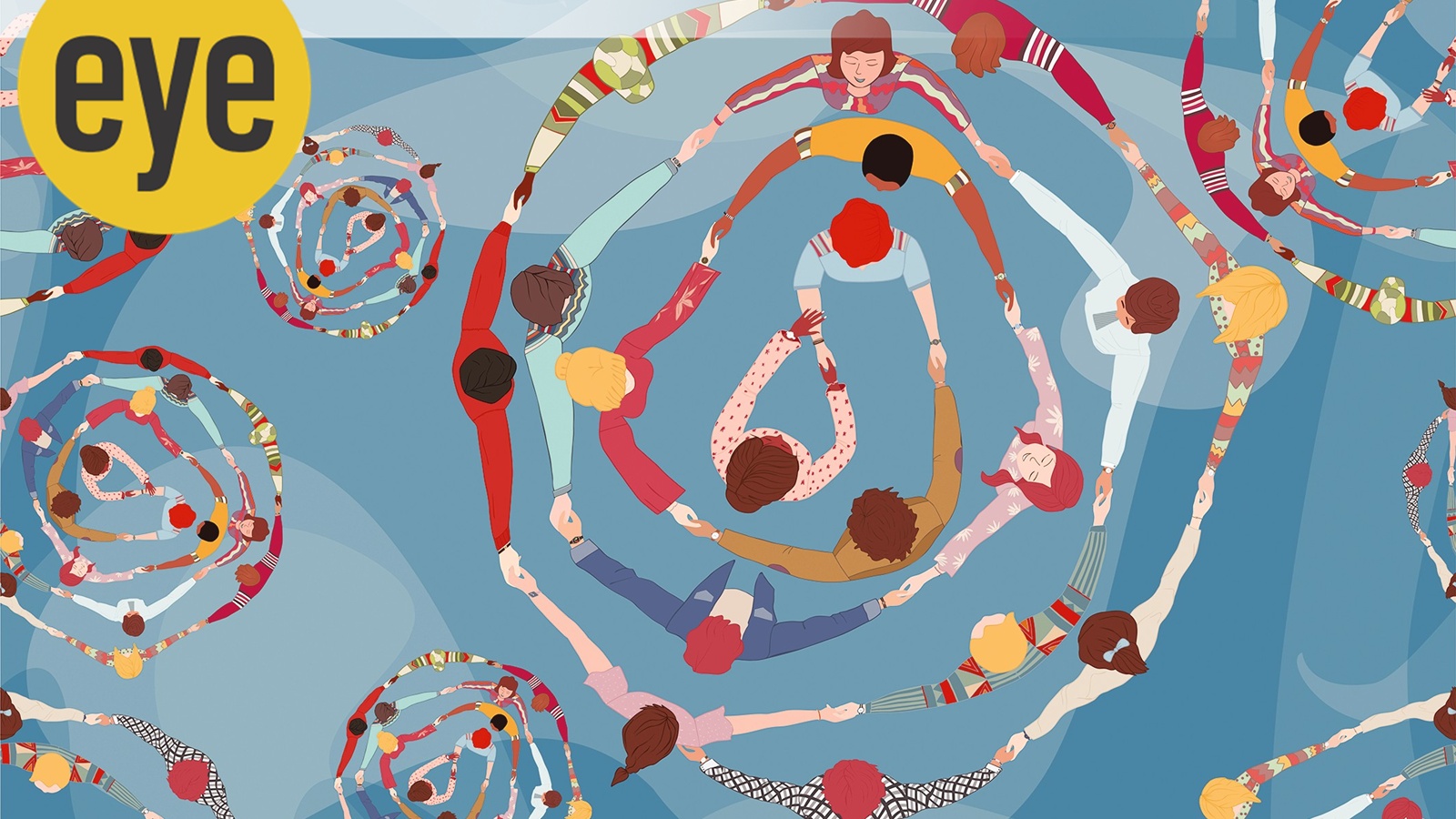Hold the roots to weather the storm
Forest approach to parenting is about celebrating diversity so that each child is accepted as they are and not hothoused for perfection and performance
 It seems like a silly thing to state, but it is bewildering how much we expect children to behave like adults.
It seems like a silly thing to state, but it is bewildering how much we expect children to behave like adults. As a child, I spent a large part of my life in my ancestral village. It was a short bus ride away from our little mountain town. As I grow older, I keep going back to those memories more and more. The local wisdom of working and living close to the rhythms of the earth, accepting calamities and the strong sense of the collective that weaved their lives together.
It is a guiding light that helps me navigate the complexities of loving, working and living. I have also observed how it influences the way I work with children, young people and their families. If there was one metaphor that I could offer that might encapsulate it, it would be: “Storms are inevitable. Hold on to your roots and build your forest.”
What do I mean when I say storms are inevitable? Children are designed to be children. It seems like a silly thing to state, but it is bewildering how much we expect children to behave like adults. To be productive, work hard, be organised, stay focused, manage time and stay on top of things. We forget that children are not mini-adults. They do things at their own pace, they make noise, mess up, forget to do what you tell them to do and look at the world not with the eyes of getting things done. They can be rude, lie, rebel, do dangerous things, get into trouble in school and generally cause us heartaches. Some struggle much more due to visible or invisible disabilities. They can give us sleepless nights when they do not fit into socially prescribed neat boxes of “good children”. Being a parent is to be full of fears, the “what ifs” (what if she never gets into college, what if he is not able to lead a normal life, etc.) and the pain of witnessing their struggles. These storms are inevitable and come with the territory.
In my work with the parents, I have learned that flailing against these storms makes them more virulent and exhausts our energies. Acceptance of the inevitability of storms that come with being a parent, of “what is”, “Jo bhi ho so ho” is a wise act of surrender that can bring in its wake little surprises of unexpected joy and peace.
If you walk around your monsoon-struck neighbourhood, you will find that the trees that do not budge are the ones with the deepest and strongest roots. That is what I mean by “hold on to your roots” in the face of the inevitable storm. We make it strong through our love, values and commitment to our children. This can sometimes be as simple or difficult as not reacting to a child when you know they are lying because you want to wait and understand what pushed them to take that step. Or letting a child make mistakes, figure things out for themselves, without always rushing to fix things. It might mean advocating for your child at a PTM or empathising with them when they tell you, “I hate school”, without lecturing them. It could also be to let go of a dream child that you might have carried in your mind (I want my child to grow up to be a doctor) and let your child know in every way possible, “I love you the way you are. You do not have to be anyone else for me to love you more.” These seemingly small acts are what build the deep root system that holds families through inescapable storms.
I saw this in action a few months back when I met Arti, the mother of an eight-year-old Roni who had been diagnosed with autism. She was a solo, working parent and lived with her ageing mother. What struck me was her calm and joyful presence. I was curious to know, “What sustains you? What keeps you going?” She seemed a little surprised with my question and then replied with tears in her eyes, “The rest of the world will tell him that he is not enough, they will laugh at him and call him names. I want to create a home for him where he is loved and respected for who he is and not what he should be to earn that”. Acceptance of her child’s struggles, her love and faith were Arti’s roots that would let her stand up to any storms that would prevail in their lives.
Arti had come to meet me as Roni’s school had asked her to find another school for him, as “he is disturbing other children in the class”. Roni was an active child who learned best when he was moving – pacing, fidgeting, rocking, etc. I can imagine it might be a little distracting for the teachers, though I am sure other eight-year-olds might not be too bothered with it. The question for all of us is whether Roni is just Arti’s responsibility? Does the school really think a change of school is the solution?
This brings me to the third part of my metaphor – “build your forest”. Have you ever walked into a lush, thick forest and felt that you were walking into a nourishing web of aliveness? There has been exciting research indicating that trees are “feeling beings”, communicating with each other through a fungal network that has been, through a play of words, called the wood-wide-web! This network protects all the trees in the forest by sending warnings in the presence of danger, nursing the baby trees, and even healing the ailing ones.
Forest approach to parenting is about celebrating diversity so that each child is accepted as they are and not hothoused for perfection and performance. We do not plant seeds of Amaltas and expect them to grow to become a rose! It seems like a ridiculous idea in the natural world, but why do we not accept these differences in our children?
To believe that each child is wired and inspired differently. And keep the faith that they will grow at their own pace and in their own way. That’s the kind of forest that protects its saplings.
I use the theme of storms-roots-forest while working with a collective of young women who have grown up in poverty and faced a lot of adversity as children. I cherish these words by them: “We are a forest with deep roots, storms may try to destroy us, but if we have strong roots, they cannot wipe us out.” “They help us to dance through the storms rather than waiting for them to pass.”
Each of us — child, parent, teacher, neighbour or policymaker — makes this forest. We all carry a bit of sunlight, water or shade. Let’s hold to our roots so that we can all stand up and hold each other as we dance through the storms.
Acknowledgement to Ncazelo Ncube and David Denborough for the Tree of Life methodology that enriches narrative practice around the world.
Composite stories and pseudonyms are used to maintain confidentiality.
- 01
- 02
- 03
- 04
- 05































